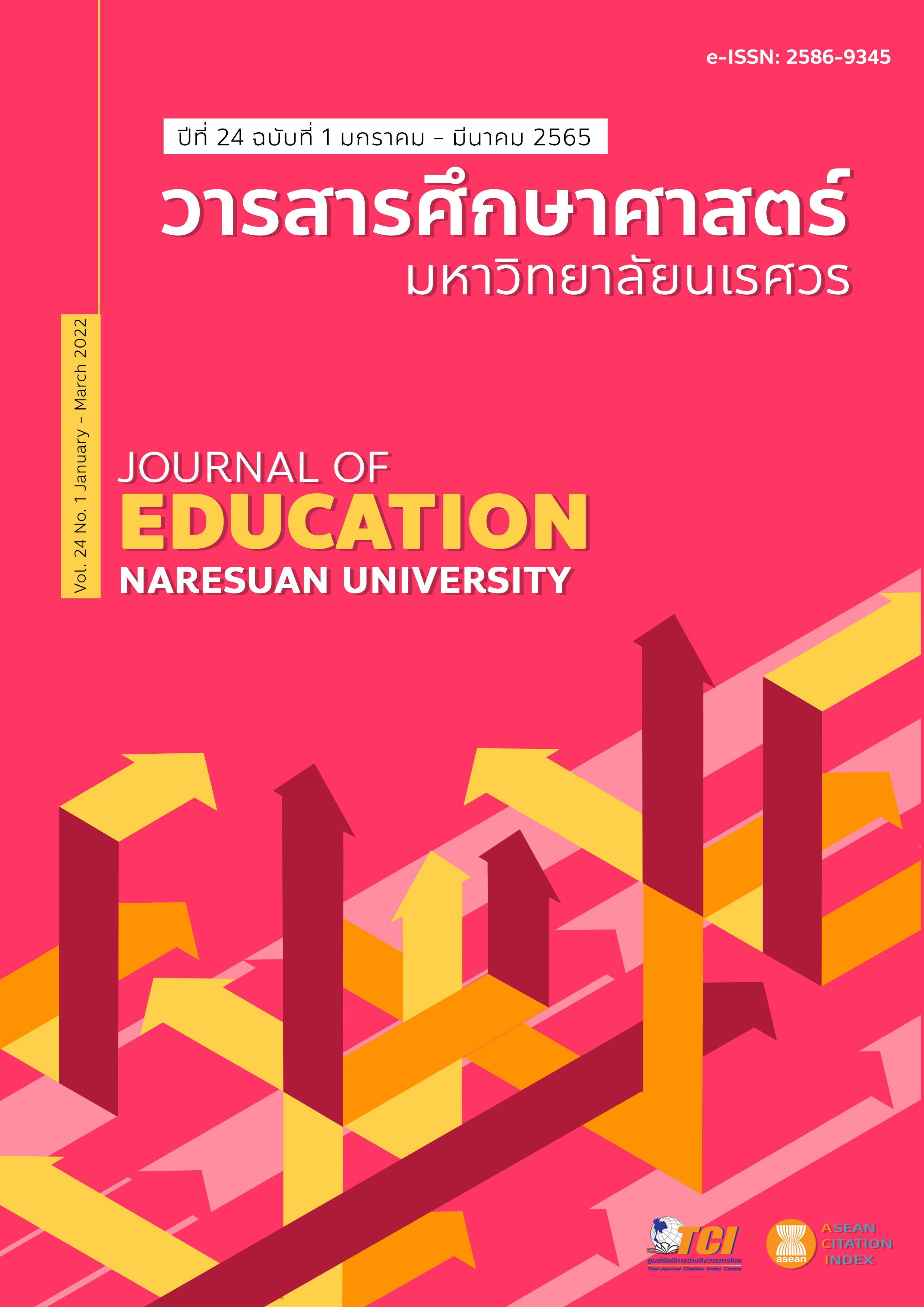GRIT AS FACTOR IN IMPROVING STUDENTS’ READING COMPREHENSION IN FILIPINO: A CORRELATIONAL STUDY
Main Article Content
Abstract
This study aimed to evaluate and determine the level and correlation of reading comprehension and grit of grade 4 to 6 students of Cebu Normal University-Integrated Laboratory School. This study was participated by 133 students who were chosen using complete enumeration sampling. Data on this study were analyzed descriptively and quantitatively using Pearson correlation tool. Results revealed that 43% of grade 4 to 6 students has unsatisfactory level of reading comprehension performance in Filipino which implies that they need to have intervention for improvement. In addition, reading comprehension of the students was greatly affected by the unfamiliarity of the language. On the other hand, 52% of these students have moderate level of grit and it has been influenced by their characteristic, attitude and culture. Moreover, it was also shown that grit had been positively significant in increasing the level of comprehension performance with the correlation value of 0.002698. Thus, it is recommended by this paper to have more studies on ways of improving level of comprehension and grit. In addition, integrative and holistic teaching are also recommended to focus not only the intellectual aspect of the students but also the behavioral aspects. Moreover, students are encouraged to read more reading materials written in Filipino language for them to be exposed in the said language. On the other hand, teachers must also seek help from the school registered guidance counselor to monitor the behavior of the students.
Article Details

This work is licensed under a Creative Commons Attribution-NonCommercial-NoDerivatives 4.0 International License.
The owner of the article does not copy or violate any of its copyright. If any copyright infringement occurs or prosecution, in any case, the Editorial Board is not involved in all the rights to the owner of the article to be performed.
References
Alber-Morgan, S. R., Matheson Ramp, E., Anderson, L. L., & Martin, C. M. (2007). Effects of repeated readings, error correction, and performance feedback on the fluency and comprehension of middle school students with behavior problems. The Journal of Special Education, 41(1), 17-30.
Bolton, F. (2007). Top level structures. Teaching PreK-8, 46-47.
Cabardo, J. R. (2015). Reading proficiency level of students: Basis for reading intervention program. Available at SSRN: https://ssrn.com/abstract=2712237
Carroll, J. B. (1963). A model of school learning. Teachers College Record, 64(8), 723–733.
Changlek, A., & Palanukulwong, T. (2015). Motivation and grit: Predictors of language learning achievement. Veridian E-Journal, Silpakorn University (Humanities, Social Sciences and Arts), 8(4), 23-36.
Center for Development of Human Services. (2002). About human development. Retrieved from http://hdr.undp.org/en/content/copyright-and-terms-use
Cook, V. (2001). Second language learning and language teaching (3rd ed.). New York: Oxford University Press.
Credé, M., & Phillips, L. A. (2011). A meta-analytic review of the motivated strategies for learning questionnaire. Learning and individual differences, 21(4), 337-346.
DeMaiolo, J. N. (2017). Getting Gritty with it: An Analysis of Grit and Reading Stamina in First Grade Students (Doctoral dissertation). Oxford, OH: Miami University.
Dewitz, P., & Dewitz, P. K. (2003). They can read the words, but they can't understand: Refining comprehension assessment. The Reading Teacher, 56(5), 422-435.
Duckworth, A. L. (2009). (Over and) beyond high-stakes testing. American Psychologist, 64(4), 279–280. https://doi.org/10.1037/a0014923
Duckworth, A., & Gross, J. J. (2014). Self-control and grit: Related but separable determinants of success. Current directions in psychological science, 23(5), 319-325.
Duckworth, A. L., Peterson, C., Matthews, M. D., & Kelly, D. R. (2007). Grit: Perseverance and passion for long-term goals. Journal of Personality and Social Psychology, 92(6), 1087–1101. https://doi.org/10.1037/0022-3514.92.6.1087
Duckworth, A. L., & Quinn, P. D. (2009). Development and validation of the short grit scale (GRIT–S). Journal of personality assessment, 91(2), 166-174.
Ivancevich, J. M., Konopaske, R., & Matteson, M. T. (2011). Organizational behavior and management. New York, NY: McGraw-Hill Irwin.
Jenkins, R. (2015).15 Aspects that highlight how generation Z is different from millennials. Retrieved From https://www.business2community.com/social-data/15-aspects-that-highlight-how-generation-z-is-different-from-millennials-01244940
Karabenick, S. A. (2003). Seeking help in large college classes: A person-centered approach. Contemporary educational psychology, 28(1), 37-58.
Keegan, K. (2017). Identifying and building grit in language learners. English Teaching Forum, 55(3), 2-9.
Ling, P. (2012). The whole language theory and its application to the teaching of English reading. English Language Teaching, 5(3), 147-152.
Lucas, G. M., Gratch, J., Cheng, L., & Marsella, S. (2015). When the going gets tough: Grit predicts costly perseverance. Journal of Research in Personality, 59, 15-22.
Macnamara, B. N., Hambrick, D. Z., & Oswald, F. L. (2014). Deliberate practice and performance in music, games, sports, education, and professions: A meta-analysis. Psychological Science, 25(8), 1608-1618.
Pascarella, E. T., & Terenzini, P. T. (1980). Predicting freshman persistence and voluntary dropout decisions from a theoretical model. The journal of higher education, 51(1), 60-75.
Programme for International Student Assessment. (2018). PISA result 2018. Retrieved from https://www.oecd.org/pisa/
Rogers, J. F., Townsend, C. D., & Lindner, J. R. (2004). Perseverance of agricultural educators by academic attainment. Journal of Agricultural Education, 45, 74-85. doi:10.5032/jae.2004.01074
Schober, P., Boer, C., & Schwarte, L. A. (2018). Correlation coefficients: appropriate use and interpretation. Anesthesia & Analgesia, 126(5), 1763-1768.
Shippen, M. E., Houchins, D. E., Crites, S. A., Derzis, N. C., & Patterson, D. (2010). An examination of the basic reading skills of incarcerated males. Adult Learning, 21(3-4), 4-12.
Singh, K. (2011). Study of achievement motivation in relation to academic achievement of students. International Journal of Educational Planning & Administration, 1(2), 161-171.
The Philippine Star. (2011). How do Filipino Students rate in reading? Retrieved from https://www.philstar.com/lifestyle/health-and-family/2010/03/02/553720/how-do-filipino-students-rate-reading.
The Philippine Star. (2010). Students read books not matched to their reading level–study. Retrieved from http://www.philstar.com/education-and-home/639276/students-read-books-not-matched-their-reading-level-study
Tupe, B. A., & Padilla, P. P. (2011). Metacognitive strategy instruction and bilingual readers’ comprehension of expository texts. The RAP Journal, 34(1), 28-44.
U. S. Department of Education. (2013). Promoting grit, tenacity, and perseverance: Critical factors for success in the 21st century. Washington, DC: Author.
Vaughn, S. V., & Linan-Thompson, S. (2004). based methods of reading instruction, grades K-3. ASCD.


